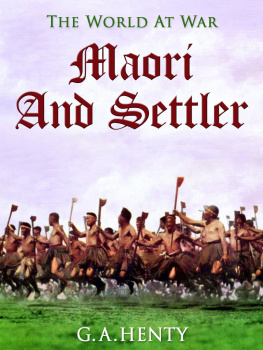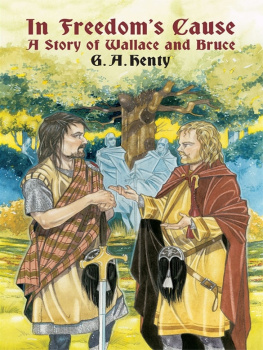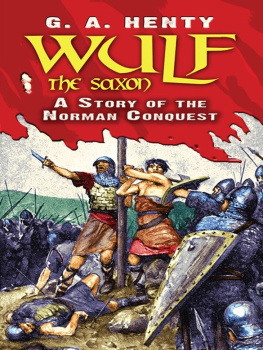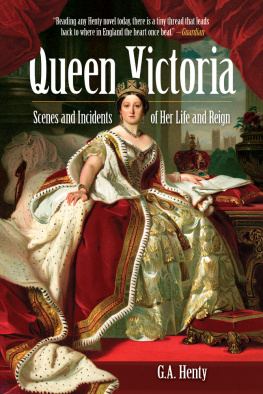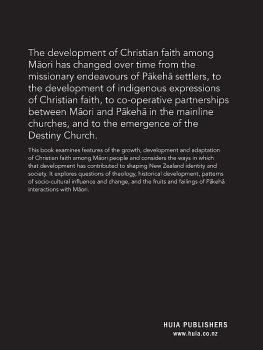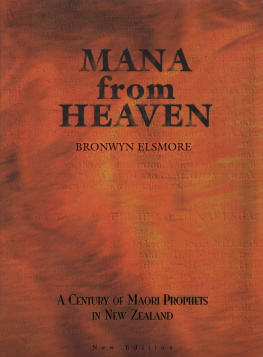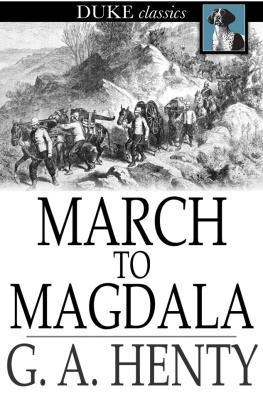G. A. Henty - Maori and Settler
Here you can read online G. A. Henty - Maori and Settler full text of the book (entire story) in english for free. Download pdf and epub, get meaning, cover and reviews about this ebook. genre: Adventure. Description of the work, (preface) as well as reviews are available. Best literature library LitArk.com created for fans of good reading and offers a wide selection of genres:
Romance novel
Science fiction
Adventure
Detective
Science
History
Home and family
Prose
Art
Politics
Computer
Non-fiction
Religion
Business
Children
Humor
Choose a favorite category and find really read worthwhile books. Enjoy immersion in the world of imagination, feel the emotions of the characters or learn something new for yourself, make an fascinating discovery.
Maori and Settler: summary, description and annotation
We offer to read an annotation, description, summary or preface (depends on what the author of the book "Maori and Settler" wrote himself). If you haven't found the necessary information about the book — write in the comments, we will try to find it.
Maori and Settler — read online for free the complete book (whole text) full work
Below is the text of the book, divided by pages. System saving the place of the last page read, allows you to conveniently read the book "Maori and Settler" online for free, without having to search again every time where you left off. Put a bookmark, and you can go to the page where you finished reading at any time.
Font size:
Interval:
Bookmark:
MAORI and SETTLER

"DROP THAT OR I FIRE!"
Page
Author of "Redskin and Cowboy" "In Freedom's Cause"
"Bonnie Prince Charlie" &c.
In the following story I have made no attempt to give anything like a general history of the long struggle between the brave tribes of New Zealand and the forces of England and the colony. That struggle lasted over a period of some years, and to do justice to its numerous incidents in the course of a single volume would have left no space whatever available for the telling of a story. It was divided into two distinct epochs. In the first the natives of the north of the islands fought for their independence and their right to have a king, and be governed by their own laws. Nothing could exceed the courage with which they struggled for these ends, and it needed a very strong force of British troops to storm their pahs or fortified camps, and overcome their resistance. The second epoch embraces the struggle brought about by the conversion of a portion of the tribes to the fanatical belief called the Pai Marire (literally "good and peaceful"), whose votaries were generally known as the Hau-Haus. During the earlier war the natives behaved with great moderation, and there were but few cases of the murder of outlying settlers. The slaying of all whites was, however, the leading feature of the Hau-Hau religion, and many cold-blooded massacres occurred during the struggle. The British troops had been for the most part withdrawn before the commencement of the Hau-Hau troubles, and the war was carried on by bodies of constabulary raised by the colonists, and with the aid of tribes that remained friendly to us. The massacre of Poverty Bay, which forms the leading feature of my story, and the events that followed it, are all strictly in accordance with facts.
G.A. HENTY
A HOME BROKEN UP.
W ell , mother, one thing is certainsomething has got to be done. It is no use crying over spilt milk, that I can see. It is a horribly bad business, but grieving over it won't make it any better. What one has got to do is to decide on some plan or other, and then set to work to carry it out."
The speaker, Wilfrid Renshaw, was a boy between fifteen and sixteen years old. He was standing with his back to an empty fireplace, his feet well apart, his hands deep in his pockets. He was rather short for his age, but very squarely built. His hair was dark, cut rather short, and so ruffled over his head that there were no signs of a parting; his eyebrows were heavy, his eyes bright but rather deeply set; his chin was square and his jaw heavy; his nose was a little upturned, and this together with his eyes gave a merry expression to a face that would otherwise have been heavy and stern.
At school Wilfrid Renshaw had been regarded as rather a queer fellow. He was full of quiet fun, and saw a humorous side in everything. He did not take a very leading part in the various school sports, though there was a general idea that if Renshaw only chose to exert himself he could excel in any of them. In point of actual strength, although there were several boys in the school older than himself, it was generally admitted that he was by far the strongest there. But he always went his own way and always knew his own mind, and when he had once given his decision every one knew that it was of no use attempting to alter it; indeed, his reputation for obstinacy was so great that when he had once said "I won't" or "I will," no one ever attempted to argue with him.
He was given to long walks and to collecting insects or flowers. He could never be persuaded to make one of the cricket eleven; but in winter, when there was little scope for his favourite pursuit, he threw himself into football; and although he absolutely refused to accept the captaincy when unanimously elected to that honour, he was considered by far the most valuable member of the team. He was scarcely popular among the boys of his own age; for although his fun and general good temper were appreciated by them, his determination to go his own way, and his entire disregard for the opinion of others, caused him to be considered an unsociable sort of fellow, an impression increased by the fact that he had no particular chums.
Among the smaller boys he was greatly liked. He would never allow any bullying when he was present; and although his interference was often resented by some of the elders, his reputation for strength and obstinacy was so great that he had never been called upon to take active measures to support his decisively expressed opinions. His father lived in a pretty house a quarter of a mile outside Reading; and as Wilfrid attended the grammar-school there, he was much more free to indulge his own tastes and go his own way than if he had been in a boarding-school. His chief companion in his rambles was his only sister Marion, who was a year his senior, although strangers would not have taken her to be so, either from her appearance or manner. She had an active lithe figure, and was able to keep up with him even during his longest excursions. They were in fact great chums and allies, and Marion would have indignantly scouted the idea had anyone suggested to her that her brother was either obstinate or unsociable.
Mr. Renshaw had been intended for the bar, and had indeed been called to that profession; but shortly afterwards he came into a fortune at the death of his father, and at once abandoned all idea of practising. After travelling for a few years on the Continent and in the East, he married and settled down near Reading. His time was for the most part devoted to archology. He had a rare collection of ancient British, Saxon, and Norman arms, ornaments, and remains of all sorts; had written several books on the antiquities of Berkshire and Oxfordshire; was an authority upon tumuli and stone weapons; and was regarded by his acquaintances as a man of much learning.
The management of the house and children, and indeed of all affairs unconnected with his favourite hobby, he left to his wife, who was, fortunately for him, a clear-headed and sensible woman. Mr. Renshaw was, in fact, an eminently impractical man, weak and easy in disposition, averse to exertion of any kind, and without a shadow of the decision of character that distinguished his son. Except when away upon antiquarian excursions he passed his time entirely in his own study, engaged upon a work which, he anticipated, would gain for him a very high position among the antiquarians of the country, the subject being the exact spot at which Julius Csar landed in Britain.
He made his appearance only at meal-times, and then paid but little attention to what was going on around him, although he was kind to his children in a gentle indifferent sort of way. For many years he had been engaged in making up his mind as to the school to which Wilfrid should be sent; and the boy had at first only been sent to the grammar-school at the suggestion of his mother as a temporary measure until the important decision should be arrived at. This had been six years before, and Mr. Renshaw had postponed his decision until it was too late for Wilfrid to enter at any of the great public schools.
Knowing from long experience what would be the result were he consulted as to Marion's education, Mrs. Renshaw had, when the girl was nine years old, engaged a governess for her without any previous consultation with her husband, simply telling him of the arrangement after it was concluded, saying: "I know, Alfred, that you have not yet decided whether an education at home or at school is best for a girl, and I have consequently arranged with a young lady to come as governess until you can come to a conclusion upon the point."
Font size:
Interval:
Bookmark:
Similar books «Maori and Settler»
Look at similar books to Maori and Settler. We have selected literature similar in name and meaning in the hope of providing readers with more options to find new, interesting, not yet read works.
Discussion, reviews of the book Maori and Settler and just readers' own opinions. Leave your comments, write what you think about the work, its meaning or the main characters. Specify what exactly you liked and what you didn't like, and why you think so.

